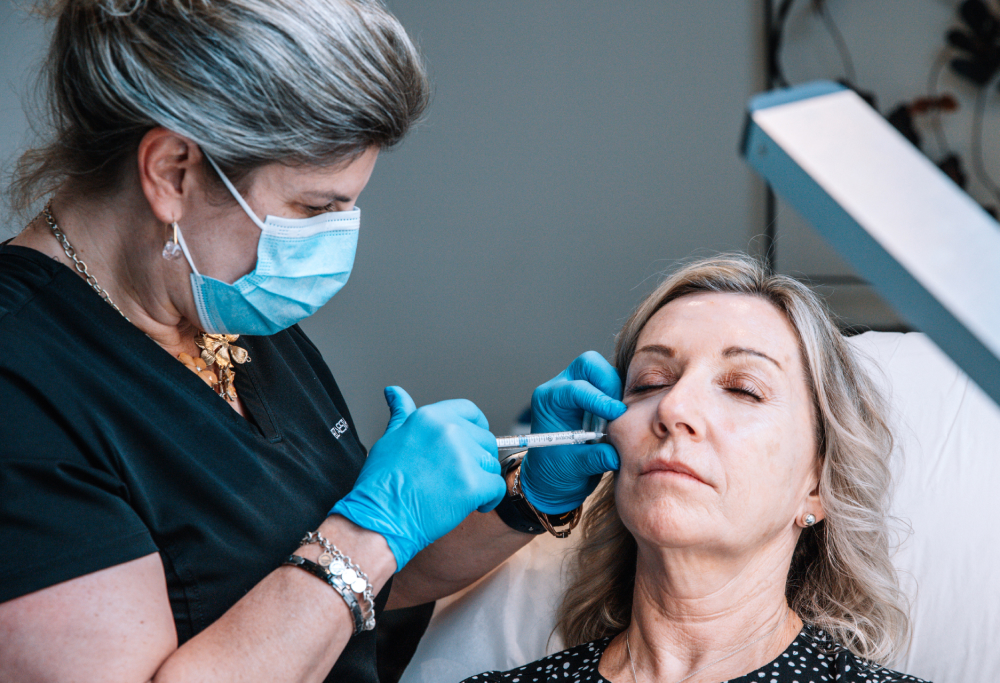blog
What Are the Medical Directives for Aesthetic Treatments?

Feb 25 2022
Reading Time: 5 Minutes
Author: Patricia Pezzano
To say that the global growth of aesthetic medical procedures increased in the past several years is an understatement. It was immense. Just take a look at this data:
Cosmetic surgical procedures went up a whopping 266% and cosmetic non-surgical procedures by 3,158%! That’s a compound annual growth rate of 7.5% and 27.1%, respectively.
With such a huge growth, the next question begs to be asked: what are the medical directives for aesthetic treatments, and how are they properly implemented?
Why is There a Need for Regulation?
Aesthetic medical procedures are continuing to increase in popularity; however, they are still medical procedures and as such, should be performed in medical environments rather than beauty salons, day spas, and shopping malls.
For example, some people host “Botox parties” in private homes. While it might seem a fun way to instantly reduce the signs of aging, it’s important to note that a Botox injection is still a medical treatment.
Because Botox and other aesthetic services and procedures are an evolving area of practice that have unique liability risks, they must be performed by a medical professional like a registered nurse (RN), a registered practical nurse (RPN), a Nurse Practitioner (NP) or a physician – just like any other medical procedure.
Cosmetic services are a “controlled act.”
Ontario’s Regulated Health Professions Act 1991 defines a controlled act as an activity that can cause considerable harm if an unqualified person with no authority, skill, knowledge, or judgement performs such an activity.
So, what’s a controlled act in cosmetic services?
In cosmetic nursing, controlled acts include administering a substance by injection below the dermis (skin) and thus, this includes both Botox and dermal fillers. These procedures, done improperly could result in pain, infection, and serious adverse events if not properly managed by qualified individuals.

Regulation of Cosmetic Nursing in Canada
A nurse can deliver a controlled act to a patient through an authorizing mechanism. This can either be a direct order for a specific patient or through a medical directive. A directive is an order than can be used for a number of people when specific conditions and circumstances exist.
A directive must be provided by a health care professional who has the authority to order the controlled act procedures. As it relates to cosmetic injections, this would mean a physician or, in some provinces, a Nurse Practitioner. Having clear, concise, accurate medical directives for individual cosmetic procedures is a key component to a successful, safe practice.
Cosmetic nurses and what they can and can’t do in terms of how they deliver the controlled act varies by jurisdiction/province.
RNs and RPNs can only administer neuromodulators if the client has been initially assessed by a physician as injecting below the dermis is within their scope of practice but initiating treatment is not. Whenever a RPN, RN, NP or physician begins a new treatment within their practice, they need to seek training from individuals that have the knowledge, skill and ability to teach them.
Different provinces have different regulations for how cosmetic injections are carried out within a practice. For instance, a physician or authorized prescriber is required to be present on site for the initial cosmetic injection in Nova Scotia but succeeding injections can be performed by a nurse alone.
Still, in other jurisdictions, NPs may prescribe Schedule 1 drugs including neuromodulators while limiting them from prescribing or ordering cosmetic treatments in others. Because of varying standards of practice, it’s important to know the current regulation or medical directives for aesthetic procedures where you are practicing or are planning to practice.
Medical Care Directives for Aesthetic Treatments
Although there are different regulations in different provinces, there are basic medical directives for treatments common to both medical procedures and aesthetic treatments.
You’ll find some of them below:
Informed Medical Consent and Discharge
Medical procedures, including those within the provisions of cosmetic nursing services, require a valid and informed consent from the client.
Without it, the procedure can be considered as assault or battery. The court can make a criminal finding and award damages regardless of whether the client suffered physical harm or not.
What makes a consent valid? The consent is valid only when:
- The client has the capacity to give consent;
- The consent has been made voluntarily; and
- The client has been properly informed about the nature of the procedure including anticipated outcome and any other risks.
The duty of disclosure is heavier in elective cosmetic services. Because the outcome of cosmetic procedures are subjective, health professionals who perform such procedures are subject to civil actions or complaints to their regulatory body.
To minimize the risk, it’s imperative to manage client expectations through comprehensive planning and discussions. For example:
- The client has been given adequate information on post-procedure care, medication, follow-up visits, possible side effects, signs, and symptoms so they can monitor and seek further medical care when needed.
- The client has been informed where they can return for intervention outside business hours.
Informed consent and discharge discussions between healthcare professionals and client must always be documented.
Record Keeping
With that said, encounters with clients must always be documented.
All regulatory bodies have established documentation standards and this applies to cosmetic services especially if a nurse is acting in a professional nursing role. Client records should also be retained for a specified period of time.
Why is this important?
Proper and thorough documentation is a nurse’s best defence in legal proceedings. Records can be used as basis to reconstruct events and provide detailed evidence especially since complaints often happen months or even years after the service has been provided.
Other Risk-Management Considerations
It would also be beneficial for healthcare professionals to be mindful of the following when delivering cosmetic services:
- Before advertising through electronic media or paper, consult appropriate regulatory standards and guidelines to check if the advertisement is compliant
- Consult with a business lawyer if you’re operating an independent practice
- Consider professional boundaries and appropriateness when dealing with client on social media

Do You Need Help With Your Medical Directives?
Failure to obtain valid medical consent can place your hard-earned license at risk, and no risk is worth that.
If you need help with your medical directives, APT Injection Training can help. We offer medical directives, human resource binders as well as a policy binders to help ensure your practice is compliant with the appropriate regulations. We are a world-class training facility in aesthetic services and the only facility in Canada to offer international certification in aesthetic medicine.
Message us today or visit our website to learn more about medical directives and conditions that go with injectable treatments.
Tips to be a
Successful Injector!
Free E-Book download
 Student Log in
Student Log in
 1267 Cornwall Rd, Unit 300, Oakville, Ontario L6J 7T5
1267 Cornwall Rd, Unit 300, Oakville, Ontario L6J 7T5

 (289) 271-5718
(289) 271-5718




































